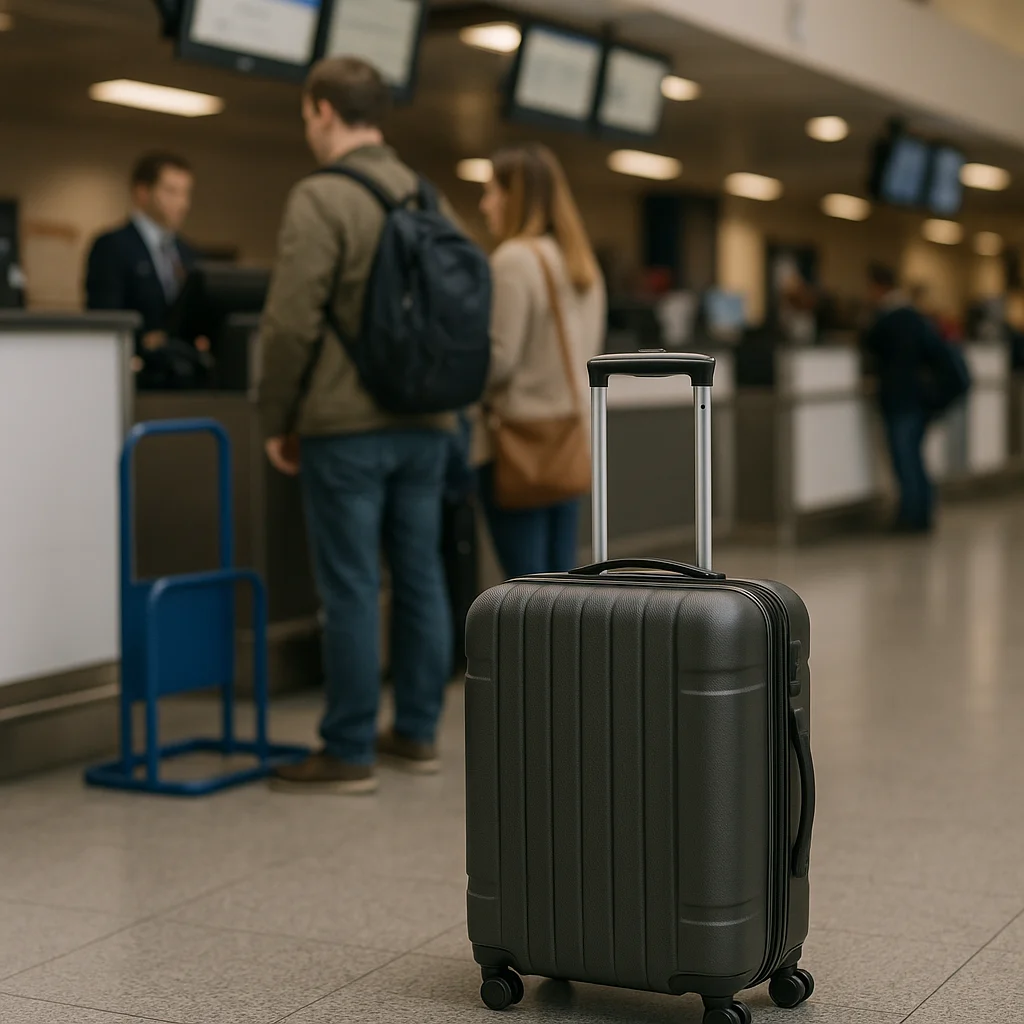Why Baggage Fees Are Impacting Passengers More in 2025
Travelers worldwide are feeling the pinch as baggage fees continue to rise and evolve in 2025. What once seemed like a minor convenience charge has become a significant factor in how people plan and budget for their trips. With more airlines adjusting their fee structures and new regulations shaping the industry, understanding baggage fees today is essential for any traveler aiming to avoid surprises and extra expenses. This article breaks down everything you need to know about baggage fees this year and how to navigate them effectively.
Current Trends Driving Baggage Fees Higher
The baggage fee landscape in 2025 is shaped by multiple forces, from inflation to operational costs and evolving airline policies. These trends explain why fees might feel steeper and less predictable.
Increased Fuel and Operational Expenses
Airlines face rising fuel prices and maintenance costs, and many pass these increases directly to passengers through baggage fees. Carrying more checked bags adds weight to flights, boosting fuel consumption and expenses.
Shift Towards Ancillary Revenue Models
Baggage fees have become a crucial source of ancillary revenue for airlines. Instead of building all travel costs into ticket prices, carriers unbundle services to offer lower base fares while charging separately for add-ons like checked baggage. This approach has become more prevalent as competition intensifies, leading to more complex and sometimes confusing fee structures.
Post-Pandemic Demand and Staffing Challenges
The travel rebound since the pandemic has increased passenger numbers, while many airlines still struggle with staffing shortages, particularly in baggage handling. To manage operational efficiency, some carriers have introduced stricter baggage policies or higher fees, impacting travelers further.
Understanding Different Types of Baggage Fees
Not all baggage fees are created equal. Knowing what you’re being charged for can help you avoid unexpected expenses.
Checked Baggage Fees
This is the most common baggage fee. It applies when you check a suitcase or bag to be stored in the aircraft’s cargo hold. Fees vary widely depending on:
– Airline and fare type
– Number of bags checked
– Weight and size of the baggage
– Flight route (domestic vs. international)
Carry-On Baggage Fees
Some low-cost carriers have started charging for carry-on bags that go in the overhead bin as a way to increase ancillary income. However, many traditional airlines still allow at least one free carry-on and personal item.
Overweight and Oversize Fees
Baggage that exceeds airline weight or size limits usually incurs additional fees. These can be substantial, especially for heavier or larger items.
How to Avoid or Reduce Baggage Fees in 2025
Travelers have several strategies to minimize baggage fees this year without compromising their needs.
Pack Smart and Light
Reducing the number of checked bags and prioritizing carry-ons can save money. Consider:
– Using lightweight luggage
– Packing versatile clothing items
– Wearing bulky clothing during the flight
Choose Fare Types Carefully
Some fare classes include free checked bags. Booking a higher-tier economy ticket or loyalty program member benefits may justify the initial cost by offsetting baggage fees.
Purchase Baggage Allowances in Advance
Prepaying for checked bags online or during the booking process often costs less than paying at the airport.
Use Airline Credit Cards and Loyalty Programs
Many airline-branded credit cards offer free checked bags as a benefit. Frequent flyers can accumulate miles for waived fees or upgrades that include baggage perks.
Recent Regulatory Changes Affecting Baggage Fees
In 2025, new rules and proposals have influenced how airlines handle baggage fees and passenger rights.
Transparency Requirements
Some jurisdictions have introduced mandates requiring airlines to clearly disclose baggage fees upfront during booking. This aims to reduce hidden costs and allow travelers to make informed choices.
Consumer Protection Enhancements
Regulators are increasingly emphasizing passenger protections, focusing on fee fairness and dispute resolution. For example, passengers who pay baggage fees and experience lost or delayed bags may have stronger recourse options in 2025.
The Impact of Baggage Fees on Different Types of Travelers
Baggage fees don’t affect all travelers equally. Understanding who bears the brunt can guide smarter travel planning.
Leisure vs. Business Travelers
Business travelers often book last-minute or flexible tickets that include baggage allowances, while leisure travelers booking cheaper fares may encounter higher out-of-pocket baggage costs.
Frequent Flyers
Those who fly regularly benefit from loyalty programs that reduce or eliminate baggage fees. However, occasional travelers are more vulnerable to unpredictable expenses.
Families and Groups
Travelers with children or larger groups may face significantly higher baggage fees due to the volume of luggage, making upfront planning essential.
Tips for Navigating Baggage Fees at the Airport
Even with preparation, baggage fee issues can arise at the airport. Here’s how to handle them effectively.
– Arrive early to handle packing adjustments if needed
– Confirm baggage dimensions and weight before check-in
– Ask staff about last-minute fee waivers or policy exceptions
– Keep receipts in case of lost or damaged bags eligible for reimbursement
– Use self-service kiosks to streamline the check-in and payment process
Conclusion
Baggage fees in 2025 have become an unavoidable component of air travel, impacting passengers more than ever. Understanding the reasons behind these fees, knowing the types, and implementing practical tactics can help minimize extra costs and travel stress. Be proactive about checking airline policies, packing smart, and leveraging fare benefits to stay ahead. For travelers ready to take control of their journey and baggage budget, informed choices make all the difference.
For personalized travel tips and advice tailored to your next trip, visit khmuhtadin.com and get in touch today. Don’t let baggage fees weigh you down—plan smart and fly smarter in 2025.
For more on airline updates and useful travel insights, check out https://www.transportation.gov/.




